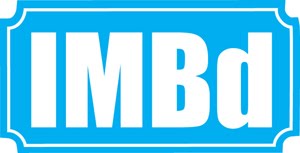 |
| Daniel Craig and Javier Bardem in Sam Mendes' 007 film, Skyfall |
***1/2 out of ****
Skyfall is one of
the best James Bond movies I’ve seen.
I’m a moderate Bond
fan. I don’t think this franchise has much with which to become invested. It
stars a very superficial hero who fans like because the vicarious experience of
being Bond is hard to resist. Understanding him isn’t part of the experience. You
don’t get to know him more than the suits he will wear, the cars he will drive,
the gadgets he toys with, the women he will bed and the bad guys he will kill.
James Bond is a cinematic tradition. No matter how much the world changes or
how manhood and feminism are redefined, James Bond will return in some way or
another, with modifications to fit him into the current state of the world.
The pleasure I get
from a 007 flick, is simply out of watching essentially the same movie again
and again which preserves characteristics of traditional flare, but with a new
style every time. There can be a new way of shooting it, a new style of music,
new materialistic goods, current fashions, state-of-the-art special effects and
maybe a new actor in the lead.
Daniel Craig
appears, for the third time, as Bond and he may be my favorite actor to play
him… Yeah… Better than Connery. When I first saw him in the incredible
franchise-reboot, Casino Royale, I was surprised how well he worked in the
role. He has the reckless charm everyone has displayed as the famous character
but more importantly his eyes make me think of someone who has a very dark side
and a killer’s streak.
Craig worked with
director Sam Mendes in the excellent 2002 film, Road to Perdition and
reportedly influenced him in recent years to take on this project. Mendes may
seem unlikely to some, since his most successful film to date is 1999’s Best
Picture Winner, American Beauty, but as a fan of his, I can’t tell you how
thrilled I was to read that he would be making a 007 movie. Upholding the
tradition of classic spectacle-driven cinema comes to mind when I think of this
franchise. Mendez has a consistent ability to utilize every traditional element
in cinema that culminates in the magnificence of the medium.
The simplest of these elements, is an inspired cast. So many in-demand talents have come together for Skyfall. Aside from Craig as Bond and Judi Dench as M, we now have Ralph Fiennes as a British Intelligence Committee chairman, Ben Whishaw as the new Q, the beautiful Naomie Harris as an agent, Albert Finney as a man from Bond’s past, and Javier Bardem as this film’s funny and unsettling villain. We also get a relative newcomer, which is preferable for a Bond love interest, with the gorgeous French actress Bérénice Marlohe.
A bolder element to
Mendes’ work is cinematography, and for the third time, he works with director
of photography, Roger Deakins, who has possibly shot the most beautiful looking
Bond movie ever. This is the first in the series to be shot without film. As
much as I am an advocate for the preservation celluloid cinematography, this
movie is a fantastic example of how far digital cinematography has come in
terms of looking warm and organic. The shots are wonderfully composed, lit and
timed. To explain one sequence of many, there is a scene set in a Shanghai high
rise where Bond fights an assassin in the dark as the two are silhouetted by
giant video display billboards, which reflect off the glass surrounding them.
Gorgeous!
The final Mendes
element is Thomas Newman who I believe to be one of the top ten best film composers
living today. His score to Road to Perdition is maybe his very best if not
his work for Frank Darabont’s Stephen King prison films The Shawshank Redemption and The Green Mile. Newman is Hollywood music royalty and lives
up to the family reputation. All his pieces in this ranging from action to
romance are in keeping with the Bond tradition.
The theme song by
Adele in collaboration with producer Paul Epworth (he also worked with Florence and the Machine to give you an idea of how it sounds) is like a new
and very improved Diamonds are Forever and plays to yet another eye-candy
filled credit sequence.
Then there’s the
action, which is beautifully executed and a mighty apology for the scattered,
shaky, Bourne-wannabe coverage and editing of the disappointing Quantum of Solace. Skyfall has an opening chase scene with the kind of fluidity and
wide shots that makes an action scene work.
Contrary to my take
on this series, this one breaks the conventional approach to the character by
making him deeper as well as giving his relationship with M greater meaning.
Fans may be put off by this. Me? I liked it. Though I think the information void
it’s filling regarding the character is more imaginable than dramatic. The
result is making this particular outing feel like more than a Bond movie... it's a real good movie.






